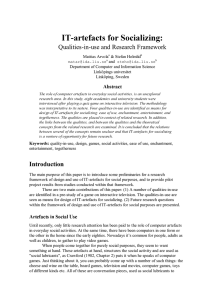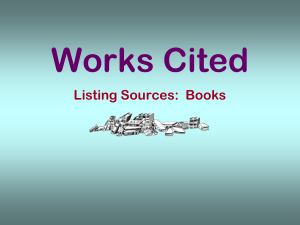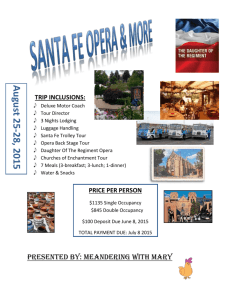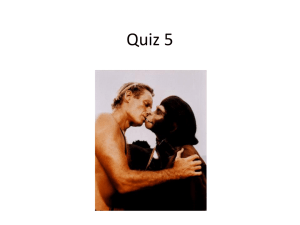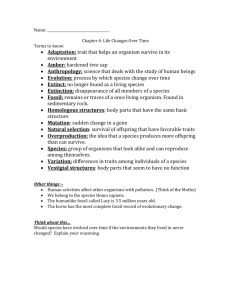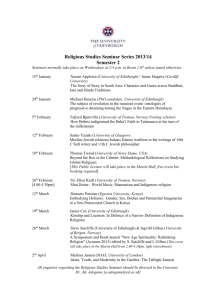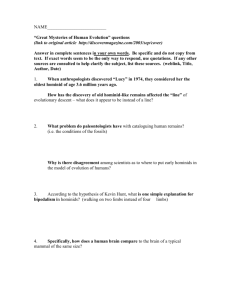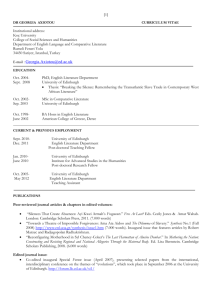viewed and downloaded here
advertisement
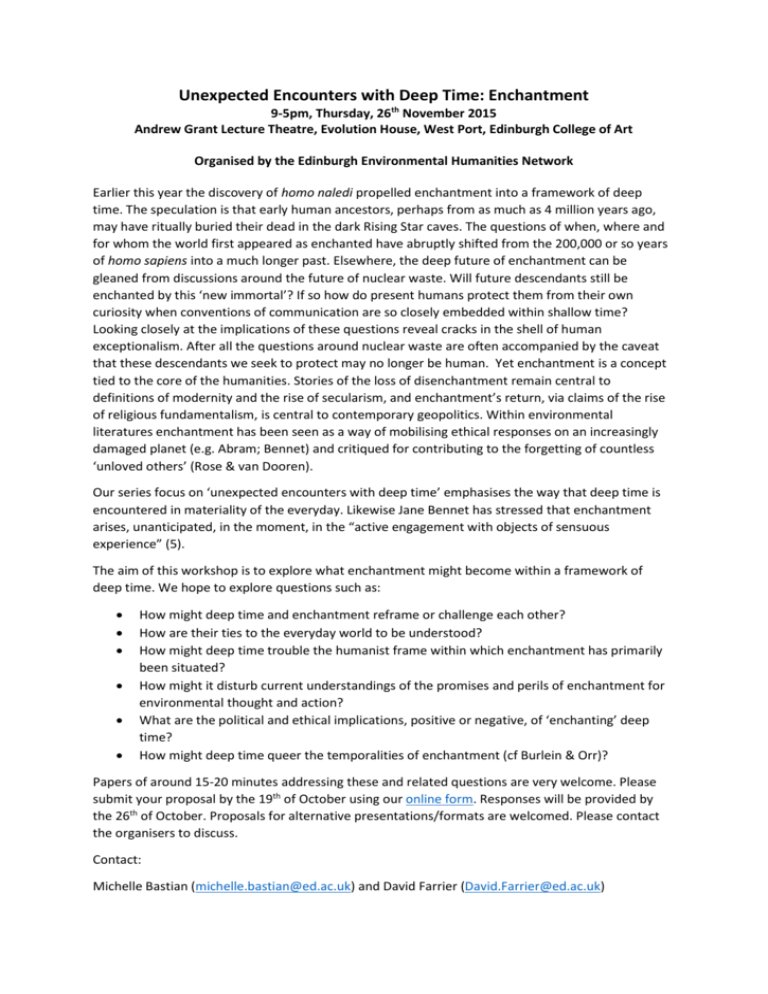
Unexpected Encounters with Deep Time: Enchantment 9-5pm, Thursday, 26th November 2015 Andrew Grant Lecture Theatre, Evolution House, West Port, Edinburgh College of Art Organised by the Edinburgh Environmental Humanities Network Earlier this year the discovery of homo naledi propelled enchantment into a framework of deep time. The speculation is that early human ancestors, perhaps from as much as 4 million years ago, may have ritually buried their dead in the dark Rising Star caves. The questions of when, where and for whom the world first appeared as enchanted have abruptly shifted from the 200,000 or so years of homo sapiens into a much longer past. Elsewhere, the deep future of enchantment can be gleaned from discussions around the future of nuclear waste. Will future descendants still be enchanted by this ‘new immortal’? If so how do present humans protect them from their own curiosity when conventions of communication are so closely embedded within shallow time? Looking closely at the implications of these questions reveal cracks in the shell of human exceptionalism. After all the questions around nuclear waste are often accompanied by the caveat that these descendants we seek to protect may no longer be human. Yet enchantment is a concept tied to the core of the humanities. Stories of the loss of disenchantment remain central to definitions of modernity and the rise of secularism, and enchantment’s return, via claims of the rise of religious fundamentalism, is central to contemporary geopolitics. Within environmental literatures enchantment has been seen as a way of mobilising ethical responses on an increasingly damaged planet (e.g. Abram; Bennet) and critiqued for contributing to the forgetting of countless ‘unloved others’ (Rose & van Dooren). Our series focus on ‘unexpected encounters with deep time’ emphasises the way that deep time is encountered in materiality of the everyday. Likewise Jane Bennet has stressed that enchantment arises, unanticipated, in the moment, in the “active engagement with objects of sensuous experience” (5). The aim of this workshop is to explore what enchantment might become within a framework of deep time. We hope to explore questions such as: How might deep time and enchantment reframe or challenge each other? How are their ties to the everyday world to be understood? How might deep time trouble the humanist frame within which enchantment has primarily been situated? How might it disturb current understandings of the promises and perils of enchantment for environmental thought and action? What are the political and ethical implications, positive or negative, of ‘enchanting’ deep time? How might deep time queer the temporalities of enchantment (cf Burlein & Orr)? Papers of around 15-20 minutes addressing these and related questions are very welcome. Please submit your proposal by the 19th of October using our online form. Responses will be provided by the 26th of October. Proposals for alternative presentations/formats are welcomed. Please contact the organisers to discuss. Contact: Michelle Bastian (michelle.bastian@ed.ac.uk) and David Farrier (David.Farrier@ed.ac.uk)
